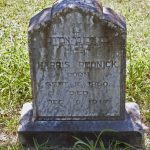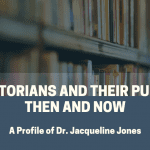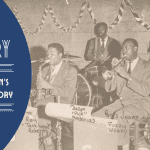by Anne M. Martínez, American Studies, University of Groningen, The Netherlands
A few years ago we had a speaker at an American Studies event here in Groningen who claimed that the field of American Studies and America itself, revolved around ideas of democracy and equality until the 1980s, when ethnic studies became more widespread, and people of color staked their claim on the American project. These histories of racism, exclusion, and inequality, with their focus on the legacies of the hatred and violence that are woven into the very fabric the United States, we were told, made America and American Studies much less attractive to people around the world.
Perhaps you can imagine how I felt in that moment, as a Chicana whose life was transformed by taking a Chicano history class and learning that my family story was part of a much bigger history of conflict between the United States and Mexico. That Chicano history class is the reason I got a PhD. I wanted to study Mexicans in the United States and to show other students of color that the story of America was their story, too, with all its power, beauty and yes, devastating hate – not just historically, but very much in the present. We are, after all, a nation that trains police forces to summarily execute Black people for allegedly selling cigarettes illegally, playing in parks, or simply driving while Black. We are a nation that separates brown children from their parents and puts them in cages for months on end, debates for a moment whether or not this is good policy in a supposedly civilized society, and gets right back to it. My heart breaks for the families and communities that continue to be devastated by the racist violence that is foundational to the history of the United States. This legacy of exclusion in the service of white supremacy is once again coming to the fore in the United States. But in spite of the brutal police repression, we are seeing on the streets of Minneapolis and other cities across the United States, I have hope.
I have hope because Jael Kerandi, the student body president of the University of Minnesota, and her fellow students told the University of Minnesota administration that her campus was not a safe place for them if the Minneapolis Police Department were contracted to be on campus. And the university listened. In the wake of police violence against George Floyd and the people protesting Floyd’s murder, the University of Minnesota cut ties with the police department for major events.
I have hope because 16-year-old tennis sensation Coco Gauff is speaking out against racism, and white tennis players around the world are stepping up to support her and promote the lessons she is teaching. Coco continues to push and educate them, regardless of how many majors they have won. It was not that long ago that any mention of racism by Serena Williams was met by media criticism, isolation, and the furthering of racist narratives about successful black athletes by other players on tour.
I have hope because the commissioner of the National Football League, an organization with a strict racial hierarchy that puts the mighty dollar before even the safety of its profit-producing players, stepped up last week to say it was wrong to condemn the silent protests of Colin Kaepernick and other players. I have hope not because I think the commissioner, who does not deserve to be named, is any less committed to that exploitation and those dollars than he was a month ago. I have hope because a focus group of regular people, or a few highly paid consultants, told the commissioner that he was on the wrong side of this. They said the American people are starting to understand how damaging white supremacy is to our society and they support peaceful protest. You should, too.

Image by David Geitgey Sierralupe (Flickr)
I have hope because Teen Vogue is doing better political writing than the New York Times. The New York Times condemns police unions for protecting their members, rather than questioning why we need police forces that are better equipped to go to war – against their own citizens – than most militaries around the world. Meanwhile, Teen Vogue is writing about why we must say Breonna Taylor’s name and that gives me hope because young women are being recognized as more than just vehicles for make-up and fashion.
I have hope because 23-year-old Maddy Malone organized a Black Lives Matter rally in Vidor, Texas, and 150 people came. One hundred and fifty people came to one of the most notoriously racist towns in East Texas and joined Maddy in saying “my generation is reaching to break the cycle” of racist hate.
I have hope because the prime minister of the Netherlands, Mark Rutte, admitted last week that Zwarte Piet, a Dutch holiday character in blackface, is problematic. I don’t applaud Rutte for finally hearing how damaging this tradition is to Black people in this country. I applaud those protesters who were brave enough to fight this fight long enough to get a small concession from the prime minister, which might educate people about why this tradition is so insulting and painful, and quicken its demise.
Coronavirus turned our lives upside down but it didn’t just happen. Like the racist violence that permeates the country of my birth, the devastating spread of coronavirus is the product of decisions over the course of centuries to exploit human and other natural resources for economic or political gain. This world didn’t just happen. It was created – or destroyed, more appropriately – by us. That’s the bad news. The good news is that we can fix it. We can change ourselves and the world around us. That’s what I tell my students every day. What starts here changes the world. It’s a great moment for scholars to teach about these legacies of violence and destruction, to transfer our vast knowledge to eager audiences. It’s an even greater moment for scholars to listen to the Jaels, Cocos, Serenas, and Maddys and follow their lead.
Anne Martínez taught at the University of Texas at Austin, 2005-2014.
The views and opinions expressed in this article or video are those of the individual author(s) or presenter(s) and do not necessarily reflect the policy or views of the editors at Not Even Past, the UT Department of History, the University of Texas at Austin, or the UT System Board of Regents. Not Even Past is an online public history magazine rather than a peer-reviewed academic journal. While we make efforts to ensure that factual information in articles was obtained from reliable sources, Not Even Past is not responsible for any errors or omissions.



